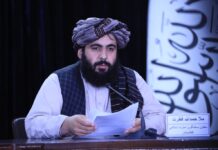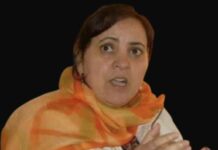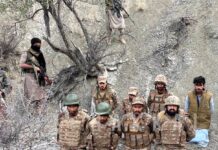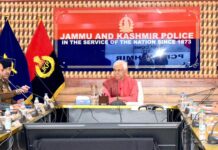New Delhi (NVI): Ahead of the peace talks between the Taliban, the Afghan government, and other Afghan political leaders, the Human Rights Watch (HRW) has said that human rights protection must be a priority during the negotiations to begin on March 10.
The human rights watchdog has expressed that the negotiations should include meaningful participation by women, victims’ groups, and proponents of legal and constitutional reforms.
Patricia Gossman, associate Asia director at Human Rights Watch said: “A durable peace agreement in Afghanistan needs to ensure the protection of fundamental human rights and mechanisms to provide justice for serious abuses,” “To achieve these goals those most affected by the conflict should have a meaningful role in the process,” she added.
On February 29, the United States government and Taliban leadership signed an agreement outlining a phased withdrawal of US forces from Afghanistan in exchange for Taliban commitments not to allow attacks on the US or its allies from Afghan territory.
The troop withdrawal is meant to take place in parallel with progress in negotiations between representatives of the Afghan government and other Afghan political groups and Taliban leaders aimed at achieving a political settlement to the armed conflict.
However, soon after signing a deal to end their war with the US military, the Taliban have resumed attacks against Afghan forces. This has raised concerns that the Americans are leaving their Afghan allies vulnerable.
The intra-Afghan talks will address the legacy of four decades of war, and the future of Afghanistan’s democratic political system. Critical issues include women’s equality in all spheres, from education to justice; due process guarantees; and media freedom, the Human Rights Watch said in a statement.
While the Taliban officially state that they do not oppose girls’ education, only a small number of Taliban district officials have permitted girls to attend school beyond puberty, it said.
Afghans face considerable difficulties obtaining redress in the courts, particularly when government officials or warlords are implicated in abuses. Journalists in areas under government control risk threats and violence from all sides, while not being able to operate at all in Taliban-controlled areas, the HRW report said.
The human rights body further stated that negotiators will need to agree on a government in Afghanistan that prevents the repetition of atrocities that fomented civil war in the past.
Afghanistan’s four decades of armed conflict have taken a devastating toll. Hundreds of thousands of Afghans have been killed, injured, forcibly disappeared, and tortured, and millions have become refugees or have been internally displaced, it said.








